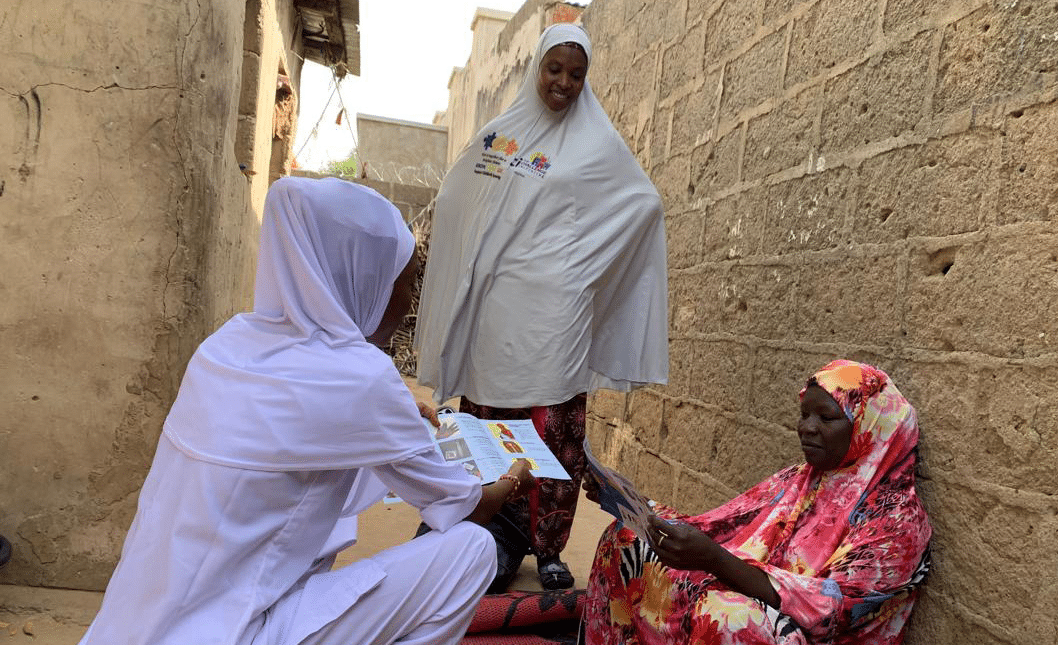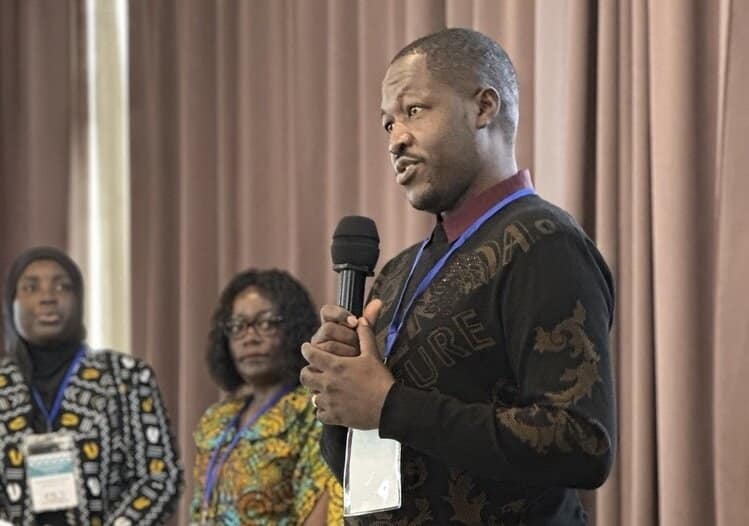In the remote village of So Haraja, nestled in Jigawa State in northern Nigeria, traditions run deep, and privacy is paramount – especially when it comes to family matters.
Despite the growing need for family planning and other health care services, cultural norms often prevent women from seeking the care they need at public health facilities. Many women rely on their husbands to advocate on their behalf, creating a significant barrier to accessing essential services.
During one community outreach session, Zambiya, a volunteer mobilizer trained by The Challenge Initiative (TCI), funded by the Gates Foundation and implemented by the Johns Hopkins Center for Communication Programs in Nigeria, spoke with a group of men who expressed their interest in family planning but voiced serious concerns about confidentiality.
Typical outreach efforts, like women gathering in groups to hear from an educator, did not align with cultural values of So Haraja, they told her. They wanted a solution that would respect their privacy while allowing their families to benefit from family planning services.
Recognizing the gravity of their concerns, Zambiya took the issue to her colleagues at TCI. Together, they devised an innovative solution: bringing family planning to the doorstep of women in the community. This household outreach approach ensured the utmost confidentiality while respecting the community’s cultural norms and expanding access to care.
On the designated day, Zambiya, alongside a health care team (which includes the health promotion officers and the reproductive health coordinators from the local government area), embarked on a discreet, house-to-house mobile outreach mission in So Haraja.
The response was enormous – more than 70 women received family planning services, many for the first time. Most opted for long-acting reversible contraception, underscoring the urgent need for these services in the community. The visit was so successful that the activity continued into late spring.
During one of these visits, the team met Liala. She shared her distress about her 17-year-old daughter, Amriya, who has mental disabilities and had been repeatedly assaulted, resulting in two pregnancies within just 15 months. Desperate to protect her daughter, Liala pleaded for help.
With Liala’s consent, the service providers discussed the best options for Amriya’s safety. Initially, Liala considered an intrauterine device (IUD) but learned that maintaining it required strict personal hygiene, which could be challenging for Amriya. Instead, the team recommended Jadelle, a long-acting implant that provides up to five years of reliable protection. It is inserted just beneath the skin on the inside of the upper arm.
Relieved and grateful, Liala agreed to the implant, knowing it would provide her daughter with much-needed security. For the first time in a long while, she felt a sense of peace, knowing Amriya would be safe from unintended pregnancies. She expressed heartfelt gratitude to TCI and the health care team for their life-changing support.
“This experience underscores the impact of TCI’s adaptable and culturally sensitive health care solutions,” says CCP’s Taiwo Johnson, who leads TCI in Nigeria. “By offering confidential, household-based family planning services, TCI and the local health care team have reached women who might otherwise have remained without care. This innovative approach has transformed lives in So Haraja community and set a precedent for reaching other underserved communities with strict cultural norms.”
“It is a powerful reminder that with empathy and flexibility, health care services can be tailored to respect community values,” Johnson says.
A version of this story first appeared on the TCI website.





